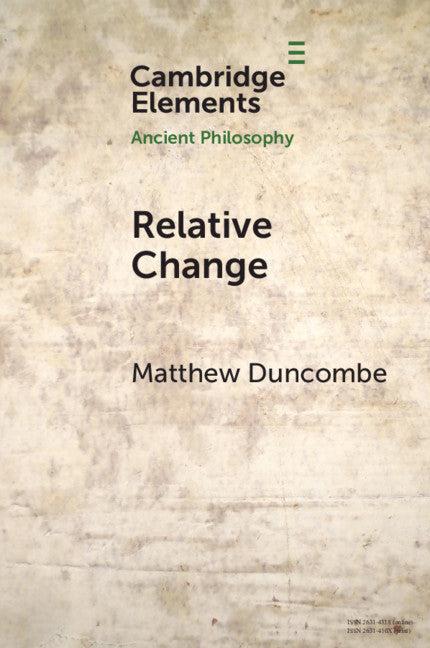Freshly Printed - allow 8 days lead
Couldn't load pickup availability
Relative Change
This Element examines how Plato, Aristotle, Stoics and Sextus Empiricus approached relative change.
Matthew Duncombe (Author)
9781108713429, Cambridge University Press
Paperback / softback, published 8 October 2020
75 pages
15 x 23 x 0.3 cm, 0.12 kg
A relative change occurs when some item changes a relation. This Element examines how Plato, Aristotle, Stoics and Sextus Empiricus approached relative change. Relative change is puzzling because the following three propositions each seem true but cannot be true together: (1) No relative changes are intrinsic changes; (2) Only intrinsic changes are proper changes; (3) Some relative changes are proper changes. Plato's Theaetetus and Phaedo property relative change. I argue that these dialogues assume relative changes to be intrinsic changes, so denying (1). Aristotle responds differently, by denying (3) that relative change is proper change. The Stoics claimed that some non-intrinsic changes are changes (denying (2)). Finally, I discuss Sextus' argument that relative change shows that there are no relatives at all.
Introduction
1. Plato
2. Aristotle
3. Stoics and Sceptics
Conclusion.
Subject Areas: Philosophy: logic [HPL], Western philosophy: Ancient, to c 500 [HPCA], Classical history / classical civilisation [HBLA1]


